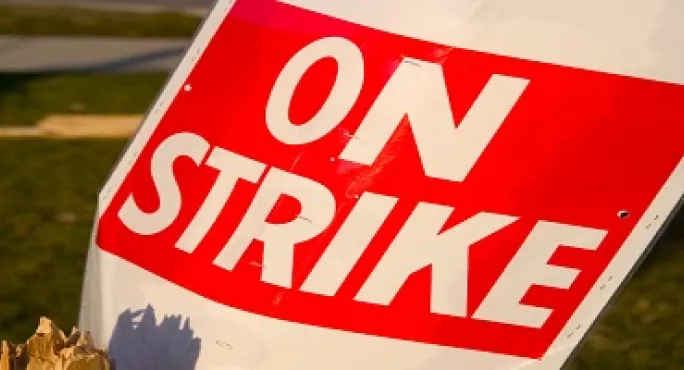Support staff union Unison has opened a ballot on strike action at 14 colleges in a dispute over pay.
This follows an indicative ballot of 11,000 members, which include some of the lowest-paid staff in FE. A survey conducted by Unison ahead of the 2018-19 pay negotiations found that, among the 472 members who responded, 12.7 per cent struggled to pay for food and one in 50 had used a food bank.
Unison head of education Jon Richards said: “These are among the lowest paid workers in colleges. Many are struggling to make ends meet or even afford food. This pay offer is derisory - it’s time employers gave staff a decent pay rise.”
Background: Low-paid support staff forced to turn to food banks
Other news: Half of this week’s college strikes cancelled or paused
Opinion: ‘Colleges and their staff must unite for funding’
Joint claim
The ballot will close on 17 May. If staff vote for strike action, this will be the latest in a series of days of industrial action the sector has seen following the latest round of negotiations. Lecturers in the University and College Union (UCU) have been out on strike at a number of colleges.
Most recently in March, strikes took place at five colleges; at a number of other colleges, industrial action was called off or paused. Strikes at Bridgwater and Taunton College were called off after college leaders agreed an end to graded lesson observations and offered a 2 per cent pay rise over nine months - 1 per cent in April 2019, and a further 1 per cent in January 2020.
Unison and other unions representing college staff submitted a joint claim for a pay rise of 5 per cent, or £1,500 for workers earning less than £30,000 a year. But the Association of Colleges (AoC), the employers’ representative in England, recommended a 1 per cent pay increase, or a one-off payment of £250, whichever is greater. The AoC cited the tight financial position across the sector as the reason for the lower offer.
Last year, chief executive David Hughes wrote in Tes: ”The brunt of the cuts has been on college staff and students with ‘efficiencies’ being found through pay freezes, fewer staff members and less contact and teaching hours for students. The good news to cling onto is that there is now a widespread understanding that this under-funding must end.”
In August 2018, it emerged that the Department for Education would not be funding a national pay rise for all college staff.
While the AoC represents colleges in national pay negotiations, each individual college is free to decide whether to accept any deal agreed or to make its own separate arrangements.
Mary Vine-Morris, the AoC’s area director for London, said: “With the increasing disparity between school and college pay we understand that unions feel this is the only way to get their voice heard. However, the major issue facing our sector is funding. That is why we are working in closer partnership than ever before with our union colleagues.
“We need to concentrate our collective energies on pushing the government for better investment in the sector, to allow colleges to properly reward their staff. In the meantime, colleges will now have to focus on ensuring that students and their studies don’t suffer as a result of any industrial action.”
Colleges where Unison members are being balloted
- Abingdon and Witney College
- Blackburn College
- Bolton College
- Bradford College
- Greater Brighton Metropolitan College
- Lambeth College/South Bank Colleges
- Leeds City College
- Leeds College of Building
- LTE Group (The Manchester College)
- Norwich City College
- Warwickshire Colleges Group
- Wirral Metropolitan College
- York College
- City of Liverpool College (running a separate ballot, also including employment terms and conditions)




